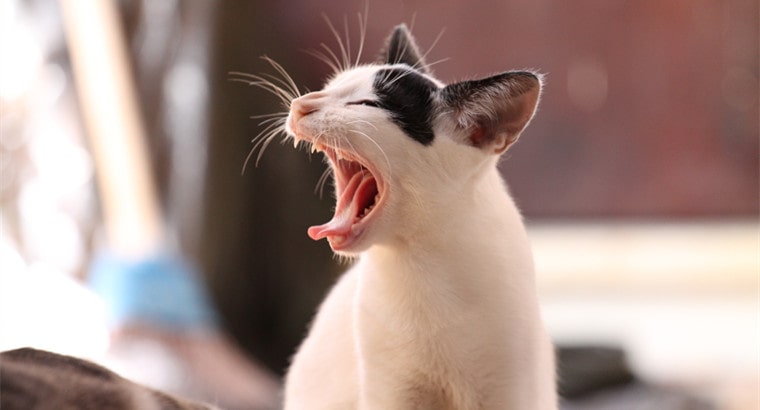Many feline pet owners have asked themselves the question: why does my cat yowl at night? Is it a sign of distress, or are they just trying to communicate with their owners?
If you’re wondering the same, perhaps this article will shed some light on your furry friend’s weird nightly habits.
Why Does My Cat Yowl at Night?
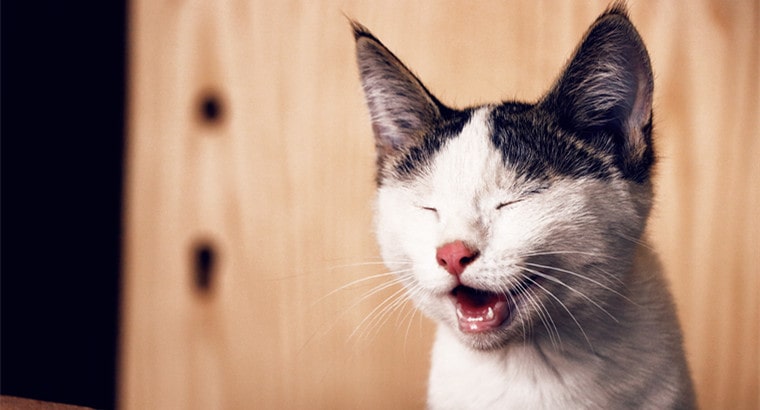
Considering the fact that cats cannot speak to their owners, yet they obviously have some feelings they would like to express, there are only a few ways they can do this. For example, your cat may act out if it feels stressed or anxious. It can also stiffen its tail, or arch its back. However, most of the time cats will opt to vocalize, or yowl.
This type of communication is more effective as it will inevitably get your attention. Just consider how many times you’ve ignored your cat when it tries to get your attention the non-vocal way!
Now the only question that remains is why does your cat yowl so much at night?
Why Does My Cat Yowl at Night? The Most Common Reasons
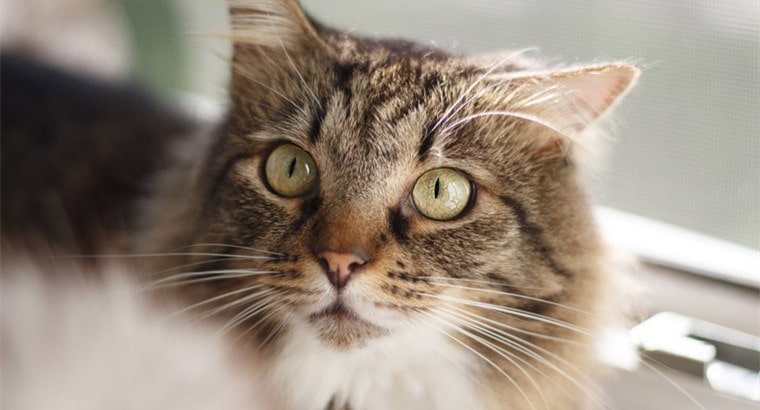
1. Yowling for Food
Just because you’ve established the perfect feeding schedule for your cat doesn’t mean your kitty will want to stick to it. Namely, cats can get a bit peckish during nighttime, especially in the winter when they require more calories to stay warm.
Ultimately, there’s no reason for your cat to yowl during the day, as it can easily get your attention in other ways. However, come nighttime, you may be asleep, which is why your cat will need to resort to the not-so-pleasant yowling method.
2. Playtime Yowls
If your cat isn’t yowling for food, then another reason for its attack on your sense of hearing could be boredom or loneliness. Yes, cats can also get bored and lonely, just like humans.
To be fair, cats do love to sleep for several hours a day. However, that doesn’t mean they’re lazy or that they don’t want to play. Cats need plenty of physical activity throughout the day. This could mean playing with toys, other cats, or (most of the time) playing with you.
You can also track their activity level and help them get rid of excess energy. As a solution, you can use a GPS cat collar with an activity monitoring function to determine which activities your cat needs. These collars will help you keep track of your four-legged friend’s daily activity level and overall health. With the results, you can make the right decisions about planning walks, playtimes, and meals.
If your cat is left alone for too long without any toys or attention, there’s a good chance it will yowl.
3. Yowling for Cuddles
Cat’s typically aren’t as clingy as dogs. In fact, most cats require lots of personal space, and they’ll have no trouble letting you know when you’re in the way.
However, even cats can get too clingy sometimes. Needless to say, if you ignore your cat’s attempts at getting your attention, it will likely resort to yowling. Ultimately, if your cat feels like cuddling with you while you’re asleep, its only option is to yowl.
4. The Mating Yowl
Another reason why your cat may be yowling is because it’s mating season. In this case, your cat will seek affection from other (opposite sex) felines by yowling to get their attention.
You can typically tell if mating is the cause for your cat’s annoying yowling. All you have to do is pay attention to its body language. Cats in heat will usually roll around on the ground when a potential mate is present, or they will simply be uncharacteristically affectionate.
Why Does My Cat Yowl at Night? Causes for Concern
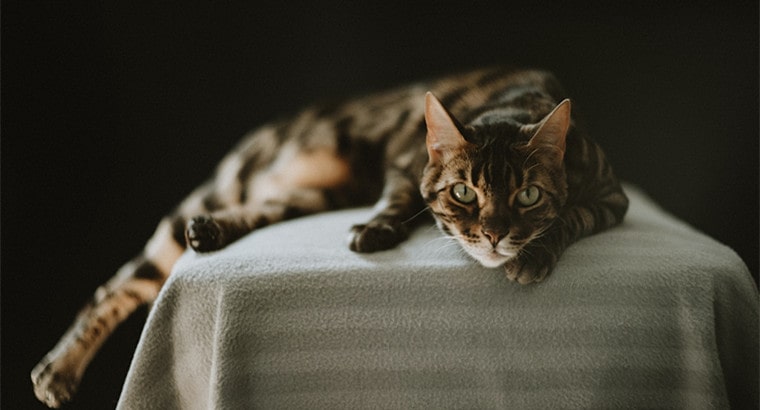
1. Yowling Out of Fear
When cats feel threatened, their first instinct is to start yowling. In fact, you may have heard stray cats yowling in the middle of the night around your neighborhood. Cats are territorial, so when they feel threatened, they’ll yowl as a sort of battle cry.
So, essentially, yowling could be your cat’s way of scaring off intruders. Alternatively, if you have two cats, they may be yowling at one another to show dominance. Usually, if one cat tries to take over the other’s territory, you could end up in the middle of a full-blown yowling match!
When this happens, you will need to let your cats sort things out for themselves. Interfering would only cause more harm than good.
2. Yowling Due to Illness
If your cat is feeling unwell, or it’s injured and in pain, it will yowl to get your attention. This type of yowl will seem more urgent than when your cat is yowling for food, and you’ll likely notice a change in your cat’s behavior. Namely, injured or sick cats will usually become withdrawn, and they may even hide.
However, some cats could actually become more clingy, depending on their personality. Ultimately, if you notice a drastic change in behavior and more yowling than usual, your best option is to take your cat to the vet.
How Do You Stop Your Cat From Yowling?
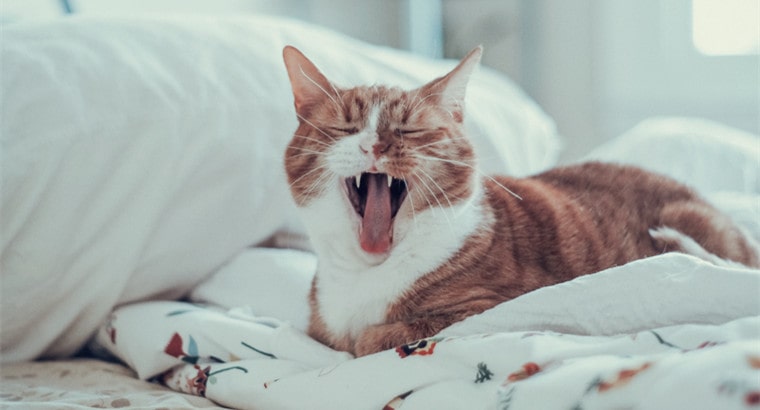
The first step towards stopping your cat from yowling every night is determining the cause of the problem.
If your cat is yowling in order to get more food, or it’s simply doing so to get your attention because it’s bored, your only solution is to retrain it. Ultimately, that means you need to stop reacting to your cat’s yowling.
Don’t pick it up, don’t pet it, don’t give it treats. Most importantly, don’t yell or punish your cat. Simply act as if you cannot hear it. This retraining will inevitably take a while, but at some point, your cat will admit defeat and stop yowling.
No matter how upsetting it may seem, if your pet is yowling excessively each night for no reason other than to get you to do what it wants, the only way to stop its behavior is to ignore it.
On the other hand, if your cat is yowling because it’s in pain, your only option is to take it to the vet in order to determine what the issue is.
Why Does My Cat Yowl at Night? The Difference Between Yowling and Meowing
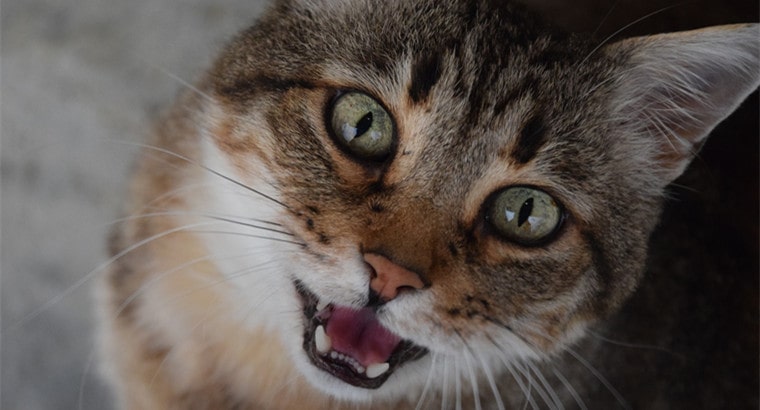
It’s easy to confuse a meow and a yowl. Unless your ears are trained to differentiate the two, you probably won’t be able to tell the difference seeing as both noises are similar. However, there are a few things to look for.
Namely, meows and yowls have different tones. Cats meow in a higher, more positive-sounding tone. Typically, meows are shorter in comparison to yowls.
Yowls are much deeper-sounding and seem more urgent. Furthermore, they can last for several seconds.
But overall, the key to noticing the difference between a meow and a yowl is keeping an eye on your feline’s behavior. Anything out of the ordinary could be a sign that something is wrong.


